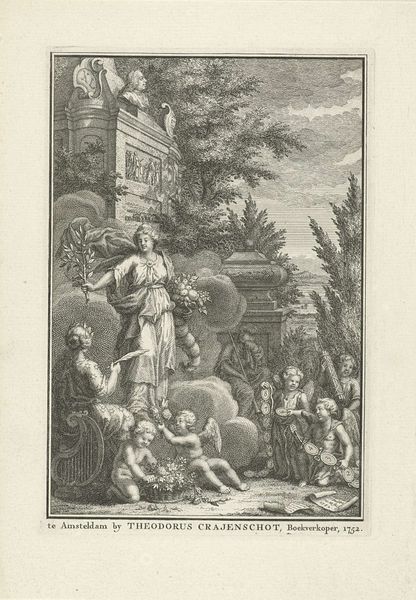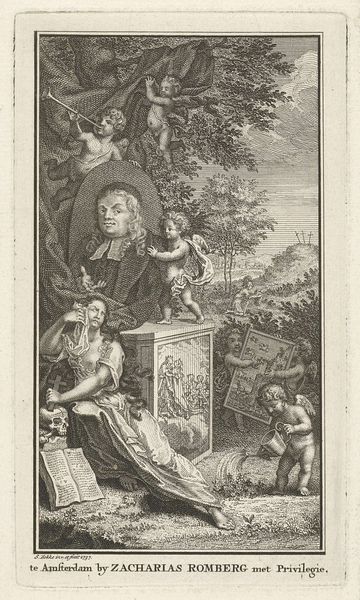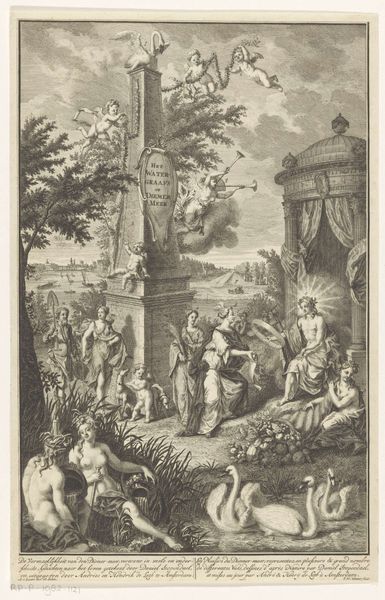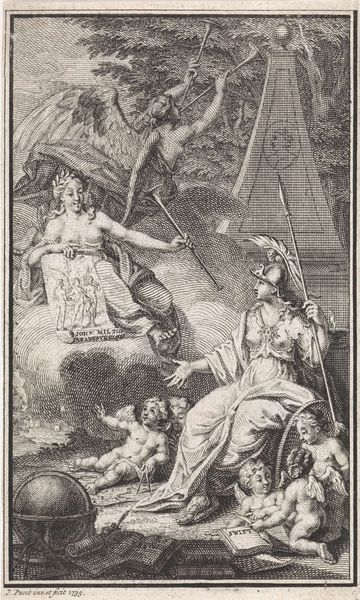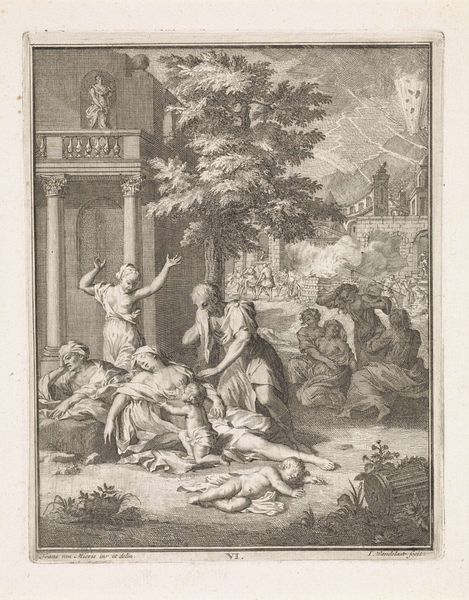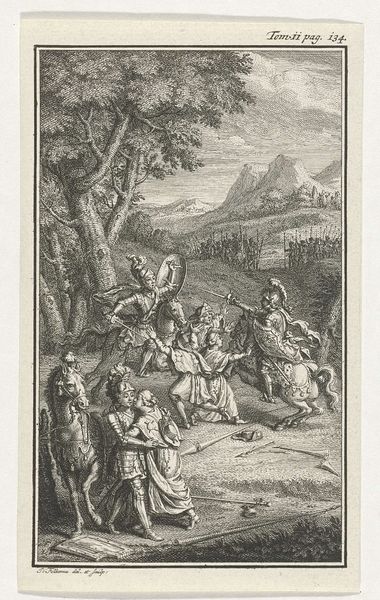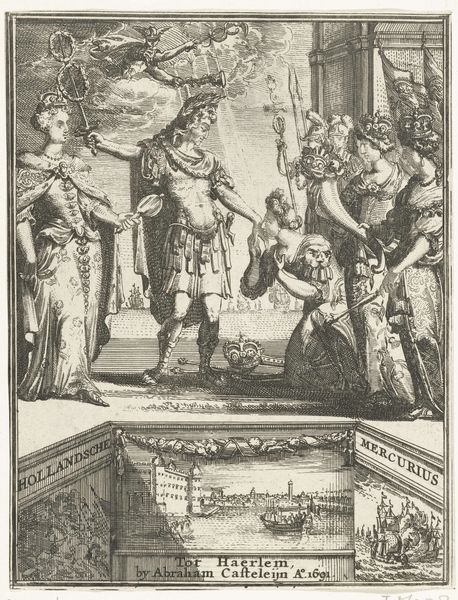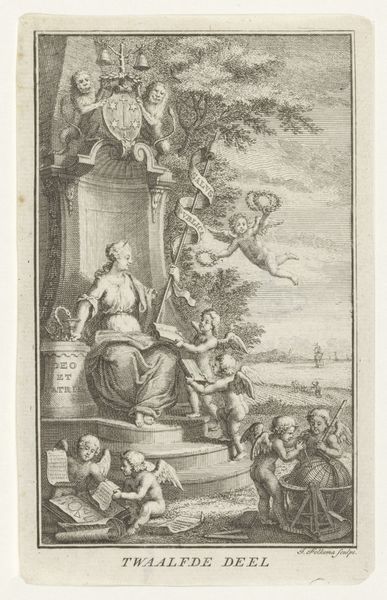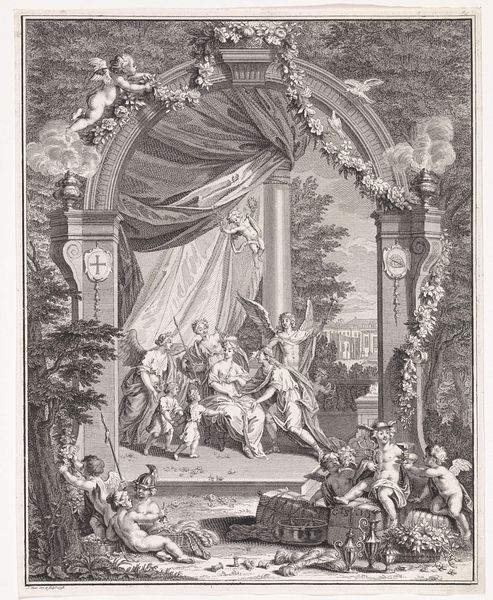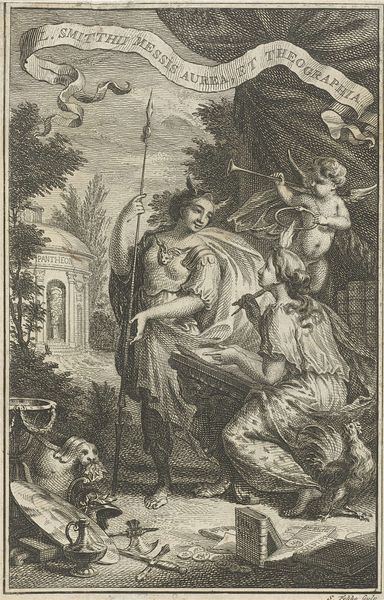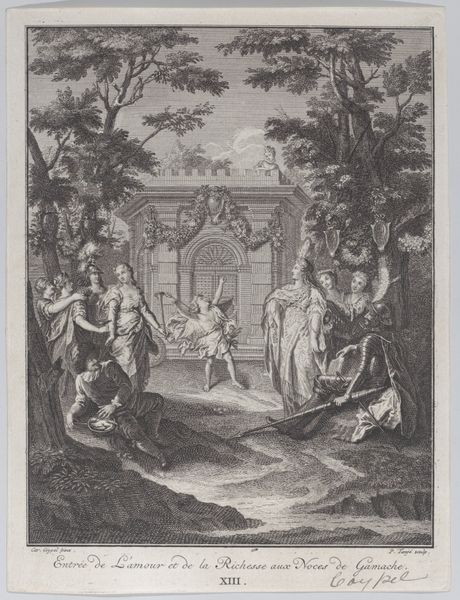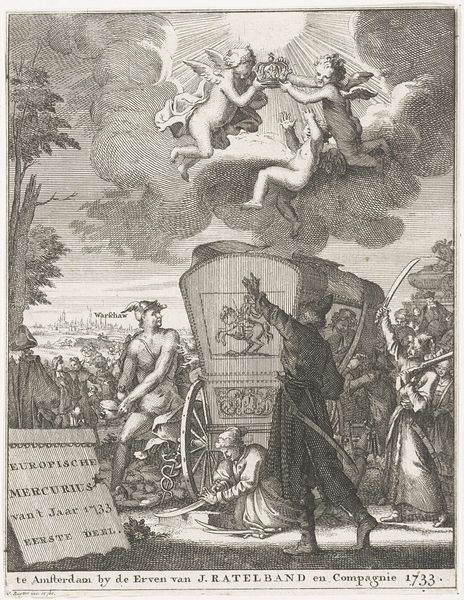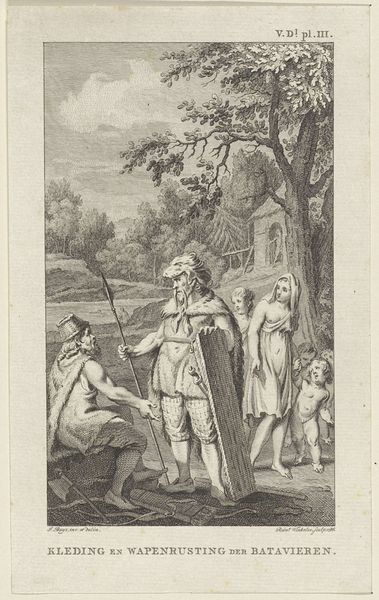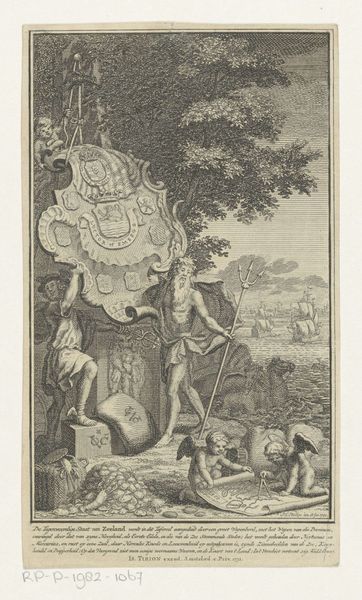
engraving
#
allegory
#
baroque
#
old engraving style
#
history-painting
#
academic-art
#
engraving
Dimensions: height 160 mm, width 105 mm
Copyright: Rijks Museum: Open Domain
This engraving by Abraham Delfos, made in 1754, depicts Minerva as the patron of the arts. Minerva, the Roman goddess of wisdom and strategic warfare, also became associated with the arts and crafts during the Renaissance. Here, Delfos presents her as a guardian of cultural achievements. We see classical architecture and sculpture in the background, tools of the artist at her feet, and cherubic figures presenting her with a heraldic shield. This imagery promotes the idea of art as a noble pursuit, worthy of divine protection and patronage. Delfos worked in the Netherlands during a period of economic prosperity and cultural flourishing. The Rijksmuseum itself embodies this cultural moment. The Dutch Republic's art market and collecting habits shaped artistic production, which often celebrated civic virtues and commercial success. By associating these values with classical ideals, Delfos elevates the status of art and its role in society. To better understand this, we could look at period writings on art theory, the records of art academies, and the biographies of artists and patrons. What we see here is how art becomes a reflection of its socio-political context.
Comments
No comments
Be the first to comment and join the conversation on the ultimate creative platform.
